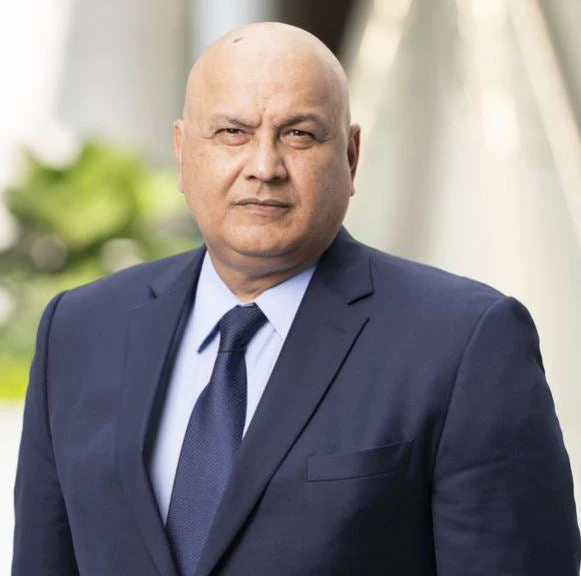 وتوخيًا لتوفير أفضل الحلول، لا بدّ أن تحدّد جميع مشاريعنا الثغرات الجندرية ذات الصلة وأن تبني الأنشطة المعنية بها من أجل سدّ تلك الثغرات. (Mohamed Azakir/ World Bank MENA)
وتوخيًا لتوفير أفضل الحلول، لا بدّ أن تحدّد جميع مشاريعنا الثغرات الجندرية ذات الصلة وأن تبني الأنشطة المعنية بها من أجل سدّ تلك الثغرات. (Mohamed Azakir/ World Bank MENA)
When I first started working as Country Director for the Mashreq, I was struck by the huge gap between the reality of being surrounded by strong, smart women at the Bank and with our counterparts and the reality of the data on women’s economic opportunities across the region. Less than 15% of women work in Iraq and Jordan while only around a quarter do in Lebanon. Unemployment is high, especially among young women. Only one in every five women who wants to work actually does work. In addition, less than 5% of firms in the Mashreq are led by a woman. And yet, in Iraq and Lebanon women are taking an active role as mobilizers and opinion builders, and the fact that a third of Lebanon’s newly formed cabinet is women. This is a record high not just for Lebanon, but in the Arab world.
So, shortly after I moved to the region, I began talking to our clients in government, our development partners and other stakeholders, to begin to understand how best the World Bank could help the countries close these gaps. Getting more women into the labor force could significantly contribute to economic growth, we know this. Estimates shows that MENA loses up to US$575 billion in regional income due to the current levels of gender-based discrimination in laws, social norms and practices that constrain women’s rights and opportunities (OECD 2016). By closing the gap in labor participation rates by 25%, Iraq, Jordan and Lebanon could grow their GDP by around 10% (ILO 2018).
For me, placing women and girls at the center of what we do is key: To contribute to country level and regional dialogue, we need to continuously learn more about context-specific constraints and what works, and thus support the collection and analysis of sex-disaggregated data and gender-specific issues. To contribute to providing solutions, we need to ensure that all our projects identify any relevant gender gaps and build in activities that address those gaps.
Putting women to work
Practically speaking, we need to focus on lifting formal constraints, such as legal restrictions; practical constraints, such as childcare and safe transport; and informal constraints, such as restrictive social norms and discriminatory behavior. It is really not about forcing women to go to work but making sure they have opportunities to do so in work environments free of discrimination and harassment. In the Mashreq Office for the World Bank, we are committed to creating a better future for women and men; all our projects identify gender gaps and push towards gender equality.
- For example, an Equitable Growth and Job Creation Project in Jordan supports changes in the laws impacting women’s ability to choose the types of work they do and their hours of employment, and addresses the issue of harassment on public transport and in the workplace.
- In Lebanon, the Supporting Innovation in Small and Micro-Enterprises (SMEs) Project is expected to exceed its gender targets by the project’s end. Close to half of the firms receiving equity finance under it are women-owned and approximately 32% of SME jobs (full-time and part-time) over the past year belonged to women — well above the 20% benchmark in the Lebanese startup ecosystem overall.
- The Iraq Electricity Services Reconstruction and Enhancement Project was designed to address specific energy constraints facing women business owners. It proposes targeting them with information about rights, responsibilities, and bill payment options.
To enable women to take part in the labor force, we need to work across sectors and with a wide range of stakeholders. We need to work closely with the private sector, the main engine for job creation. To support the governments of Iraq, Jordan, and Lebanon in their efforts to increase women’s economic opportunities and achieve specific targets they have set to increase women’s labor force participation, the World Bank and IFC, in collaboration with Canada and Norway, launched the Mashreq Gender Facility (MGF) about a year ago. Through collaboration with the private sector, civil society organizations and development partners, this five-year facility provides technical assistance to support government-led efforts, country-level priorities and strategic regional activities that strengthen the enabling environment for women’s economic participation and improve women’s access to economic opportunities.
Today I’m pleased to launch the MGF webpage, which we hope will become a useful platform to share the progress in women’s access to economic opportunities being made in Iraq, Jordan, and Lebanon. I’m looking forward to the Second Mashreq Conference on Women’s Economic Empowerment, to be held in Amman, Jordan, 2020. The conference will provide an opportunity for stakeholders to reflect on progress and challenges, to hold us accountable, and to recommit to the agenda of facilitating Mashreq women’s economic participation. Stay tuned for more on the conference, and engage in the conversation through our hashtags #WEmashreq #shecan on @WorldBankMENA.


Join the Conversation